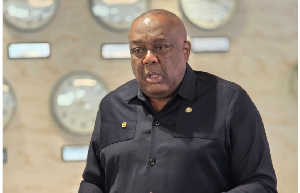Dr George Amofah, a Private Health Consultant, has called on stakeholders in the health sector to pursue proven interventions that could prevent diseases as a better option to finding curative remedy for them.
“We must investigate and look for what is leading to an outbreak of a disease like cholera and find a holistic approach to addressing it to prevent its re-occurrence in a particular area or region,” Dr Amofah, a former Deputy Director-General of the Ghana Health Services, said.
Speaking at a health training workshop organised by the Alliance for Reproductive Health Rights (ARHR) and Curious Minds, a media-based youth organisation for selected journalists in Accra, Dr Amofah said the totality of health care provisions depended largely on many factors and not only the provision of health facilities and health care professionals.
“What needs to be done is to become champions of the fact that health does not only depend on hospitals and health professionals but it depends on the integrated actions of a number of multiplicity of factors...,” he said.
The journalists were educated on Primary Health Care and its importance in improving the healthcare of the citizenry.
Dr Amofah said primary health care became a bigger issue before the 1978s after it was observed that there was inequality in the health status of the people.
This, he said, led to the deterioration in the health of Ghanaians and that necessitated the mobilisation of integrated approaches adopted at the time to improve the health of the people.
He said although the intervention really helped at the time, the focus had now shifted more into the provision of mainly health facilities which most politicians prided themselves in.
They, thus, pushed to the background the core actions of preventing diseases and health promotion that would lead to a behavioural change in the life styles of the people.
Dr Amofah said the National Health Insurance Scheme was also related to curative health services and not the preventive that would allow people to just walk into a facility to check their health status to help prevent diseases like hypertension and diabetes which continued to increase.
He, therefore, called on journalists to learn to become “medical journalists” who would strive to understand the issues of health holistically and help in efforts at informing and educating the public on health promotion.
Dr Robert K. Mensah, a Consultant on Reproductive Health at the UNFPA, said in the provision of primary health care, community engagement was key in achieving higher results, adding: “people should be part of finding solutions to their health needs”.
“Attitudes of people and communities must be influenced by leadership. We need to make communities and individuals aware of what is wrong with them, what they are doing right or wrong and not only to sensationalise issues,” Dr Mensah said.
Nii Sarpeh, the Programmes Manager of Alliance for Reproductive Health Rights, said the training workshop was to build the capacities of journalists on primary health care to enable them to help promote good health practices among the citizenry.
He said this would also help to put government and other stakeholders on their toes in attaining universal health care.
Health News of Sunday, 22 January 2017
Source: GNA













